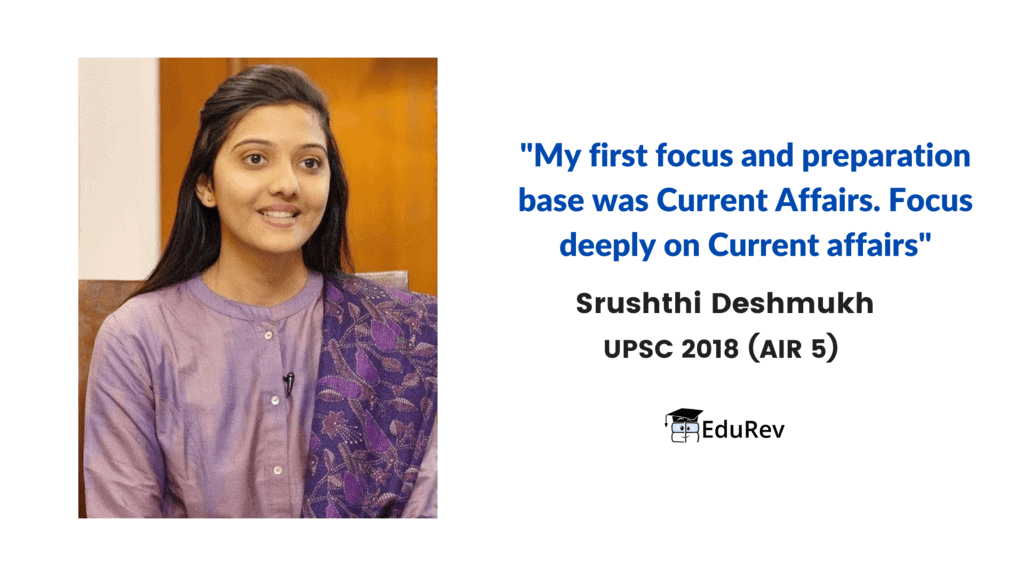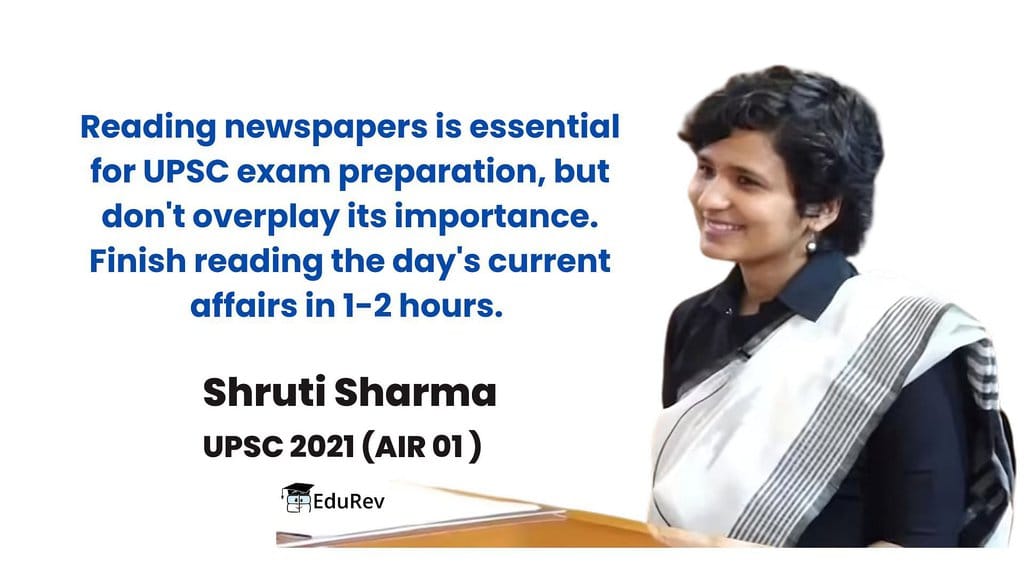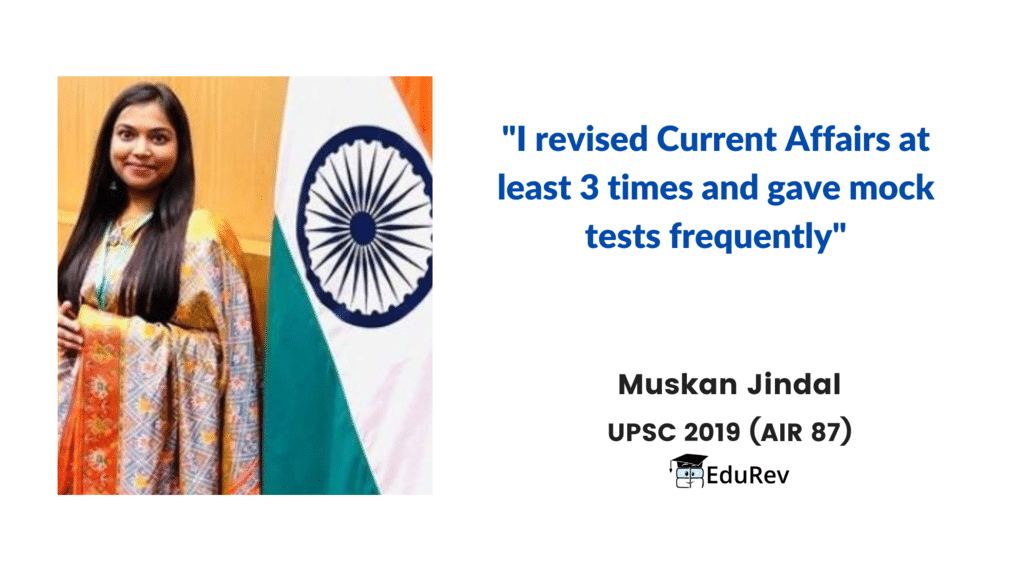How to Study Current Affairs for UPSC Preparation with EduRev App | How To Study For UPSC CSE PDF Download
Current Affairs is a dynamic and undefined part of the UPSC Syllabus that puts aspirants in a dilemma thinking how and from where to start current affairs preparations for IAS.

To clear all the doubts and give aspirants a fair idea on how to deal with the current affairs, here is a strategy on "How to Cover the Current Affairs Part of the UPSC Syllabus" for UPSC aspirants. Before we discuss the steps to excel in the Current Affairs section, let's first take a look at the sources that you should refer to in order to master this section.
What are the sources one must cover for Current Affairs?
There is a deluge of reading material both online and offline on current affairs which makes it difficult for the aspirants to understand what to read. Aspirants are pilling CSR, Pratiyogita Darpan, EPW, Chronicle, Yojana, and every random magazine on their desks but they do not even open them due to lack of time. Here are the sources one must cover for Current Affairs:
1. Newspapers & PIB releases
One must start with a comprehensive reading of at least one standard newspaper like The Hindu or Indian Express.

- Newspapers are the best source of reliable information on current affairs. They are easy to access and pocket-friendly too.
- In addition to newspapers, PIB releases must be regularly read. Other newspapers you can follow other than The Hindu or Indian Express are: Business Standard, Dainik Jagran, Navbharat Times, Dainik Bhaskar
- This course on EduRev provides a comprehensive analysis of the Hindu newspaper, updated daily, and helps you understand What to Read and What to Skip. The course is focused on Current Affairs and provides daily, weekly, and monthly updates.
2. Magazines
One drawback of newspapers is that you need to follow a particular topic every day to know everything about it. With magazines, this is not the case. Magazines usually have a cover or a feature story that covers the entire story together.
Some of the best magazines for Current Affairs UPSC Exam are:
- Yojana: It is a monthly government magazine for IAS. The center of focus for them is socio-economic issues and government schemes for the IAS exam. You can find Monthly Gist of Yojana Magazine on EduRev from here.
- Kurukshetra: It is again a monthly government magazine. This magazine mainly deals with rural India and covers topics like agriculture and rural development. You can find Monthly Gist of Kurukshetra Magazine on EduRev from here.
- Economic and Political Weekly: This is a social science magazine with a main focus on sociology, political science, history, and environmental studies. Many well-known commentators and political activists contribute articles for this magazine. So, it is helpful for UPSC prelims and mains exam.
- Down to Earth: This magazine deals with topics like housing, health, economy, and the environment. It covers news, Opinion articles, and some interesting facts about Indian Society challenges and is important for UPSC.
- Civil Services Times: This is one of the most important magazines catering to civil service exams. They have reliable information collected from different government-run websites.

3. Daily Current Affairs
Practicing current affairs on daily basis is important so that you are able to retain and keep in mind the information gathered.
- Practice 50 MCQs on current affairs daily. When the exam is nearer practice 100 MCQs daily.
- You can practice daily current affairs MCQs through EduRev's course: Current Affairs & Hindu Analysis: Daily, Weekly & Monthly
4. Weekly & Monthly Current Affairs
Week-wise and month-wise current affairs provide you a compilation of current events of the week and month.
- They are important as you get the summaries of weekly and monthly events at a single place.
- You can find the Monthly Current Affairs Compilation and Weekly Current Affairs Compilation on EduRev and can utilize them to ace this section.
5. Other Sources like Gov. websites, Internet etc.
Apart from newspapers, there are other sources that can be incredibly helpful for UPSC exam preparation.
- Government Websites: The Press Information Bureau (PIB), the Parliamentary Research Service (PRS), and national television programs featured on Rajya Sabha TV are excellent sources of information on government policies, schemes, and initiatives.
- IE Explained Section: The Indian Express newspaper has a section called "IE Explained" that provides a comprehensive understanding of a particular issue. It is an excellent source for gaining in-depth knowledge and understanding of complex issues.
- All India Radio: All India Radio broadcasts a daily news bulletin in Hindi and English, which can be a valuable source of information on current affairs.
- Internet: The Internet can be an excellent source of information for UPSC exam preparation. There are many reliable websites, blogs, and forums dedicated to UPSC preparation that provide valuable insights and information. However, it is important to be selective and choose only reliable sources of information.
How to effectively use the above-mentioned sources for UPSC Current Affairs Preparation?
Here are some recommended steps for effectively using the aforementioned sources while preparing for the UPSC exam:
1. Limit your time for Current Affairs & stick to it
The problem with most aspirants is not that they neglect newspapers, but they overplay its importance. Some read newspapers for almost 3-4 hours a day, leaving them with no time to read other subjects.

Current affairs are important; newspapers are important, but not so much that you invest time disproportionately. Ideally one should finish reading day's current affairs in 1-2 hours.
You can divide your time for Current Affairs/Newspaper Reading like this:
- Newspaper reading (30-45 mins everyday)
- Look for issues and make notes on them (one or two a day / 30-45 mins)
- Practice 10 MCQs on current affairs daily (10 mins everyday)
- Refer monthly current affairs compilation (2-3 days in a month)
2. Cover Issues and Not News
Aspiring civil servants should strive to develop a deeper understanding of current issues beyond just skimming through news headlines. The UPSC exam often features questions related to current events, making it essential to comprehend and take thorough notes on current issues. Here are some useful points to consider while analyzing any current issue:
- Reason: Understand the reason behind why it is in the news.
- Background Knowledge: Gather facts, data, and reports to gain a comprehensive understanding of the issue.
- Current Status: Be aware of any actions taken thus far regarding the issue.
- Both Sides: Analyze the pros and cons of the issue from multiple perspectives.
- Opinion/Suggestion: Formulate an informed opinion and consider potential solutions or suggestions.
3. Make your own Notes
Even though current affairs are vast and seem never-ending, it is advised that the UPSC aspirant should make their own notes, as students tend to understand and learn concepts better if they have written them down a couple of times. The most important point aspirants should remember while preparing the current affairs notes are:
- Notes should be short and up to the point which will help you present all the important aspects of the topic.
- Topic-wise notes should be there as information related to a single topic will be stored in one place.
- Use pointers, flow charts, mindmaps, etc for making notes. They will help in concept clearing and also remember everything.
- You’ve to train your mind to create multi-dimensional linkages. After the basic foundation, keep studying the newspaper, monthly subject-wise notes for all the subjects, preparing your notes, and practicing essay writing.
- It’s important because when you become a civil servant, you face multiple situations on a daily basis where you’ve to evaluate a situation & its all possible implications. You start developing through these multi-dimensional linkages.
4. Effective & Multiple Revision
The aforementioned methods will ensure that you capture 90-95 percent of current affairs in a manner relevant to this exam. But current affairs are a continuous and evolving field that keeps piling up by the day. The best way to retain the content is through constant revision.
The best methods of revision are:
- Executing the Current Affairs in the answers you write during daily practice or test series.
- Re-writing again and again.
- Constant revision of Current Affairs at regular intervals from Current Affairs & Hindu Analysis: Daily, Weekly & Monthly
5. Practice Answer- Writing
Practice writing on a daily basis. There is no substitute for answer-writing so you must learn it before it is too late. You should prepare yourself well and keep answering keeping in mind how an IAS officer would answer.
You should learn from your mistakes and improve from them. Pick up an editorial from a newspaper or a topic from the syllabus, and frame a question on it and write its answer. EduRev has also curated 100+ answers for UPSC Mains Preparation to help you understand how you can write the answers: Check: Essay Writing for UPSC Mains
We trust that you now have a comprehensive comprehension of utilizing the EduRev App to study Current Affairs for your UPSC exam preparation. To ensure you have covered all aspects of the exam, we recommend exploring the links mentioned below.
Other Important Links
1. Overall Understanding of Exam.
Check out these documents and prepare your strategy for UPSC-CSE accordingly.
2. Prepare each subject well from EduRev.
Check out these documents:- How to study History using the EduRev App?
- How to Study Current Affairs for UPSC Preparation with EduRev App
- How to study Environment for UPSC using the EduRev app?
- How to study Geography for UPSC with the EduRev App?
- How to study Indian Economy for UPSC using the EduRev app?
- How to study Polity using the EduRev App?
- How to study Science & Technology for UPSC using the EduRev app?
Happy Learning with EduRev!
|
3 videos|25 docs
|
FAQs on How to Study Current Affairs for UPSC Preparation with EduRev App - How To Study For UPSC CSE
| 1. What sources should be covered for UPSC Current Affairs preparation? |  |
| 2. How can one effectively use the sources mentioned above for UPSC Current Affairs preparation? |  |
| 3. Why is it important to limit the time for Current Affairs while preparing for UPSC? |  |
| 4. What is the importance of making one's own notes while preparing for UPSC Current Affairs? |  |
| 5. What are some other sources that can be used for UPSC Current Affairs preparation? |  |

|
Explore Courses for UPSC exam
|

|



















